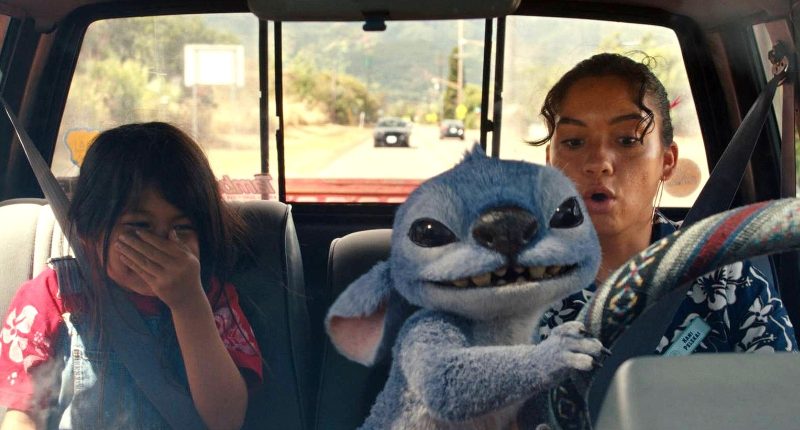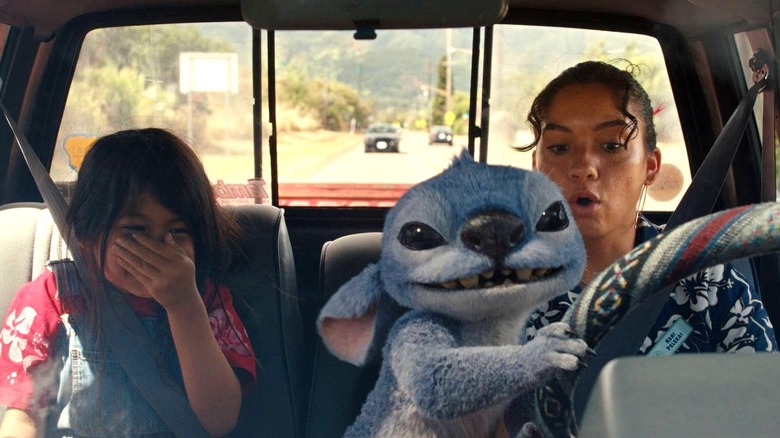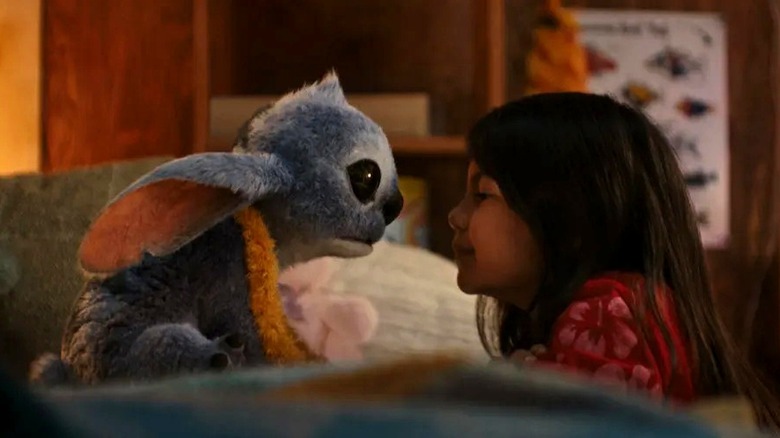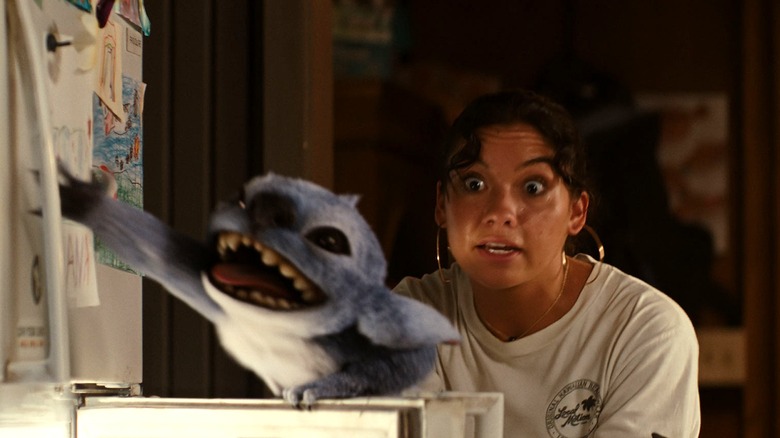Share this @internewscast.com
“Ohana means family. Family means nobody gets left behind or forgotten.”
The 2002 animated classic, “Lilo & Stitch,” cherished by many, narrates the tale of Stitch (voiced by Chris Sanders), an extraterrestrial who lands on Earth and becomes part of Lilo’s (voiced by Daveigh Chase) imperfect yet loving family, alongside her elder sister Nani (voiced by Tia Carrere). The sisters, who have lost their parents, face a real threat not from aliens but from Cobra Bubbles (voiced by Ving Rhames), a social worker intent on separating them. Ultimately, the siblings remain together, enriched by a few alien friends, conveying the notion that family can take many forms, whether it’s the conventional or two sisters with alien friends. However, the ending of the 2025 remake diverges significantly from this message, implying family sometimes means leaving someone behind.
On social media, fans are expressing their discontent as the live-action adaptation of “Lilo & Stitch” alters the ending drastically. In this version, Nani, played by Sydney Elizebeth Agudong, chooses to relinquish Lilo (portrayed by Maia Kealoha) to the state, allowing her to stay with neighbors while she pursues her education in California, not even in Hawai’i. This decision has disheartened many fans of the original. For instance, X user @RubySakurai expressed, “HOW DO YOU COMPLETELY MISS THE POINT OF THE ORIGINAL ANIMATED MOVIE THIS BAD??? OOHHH I HATE THIS SO MUCH.” Similarly, @agraybee stated, “It’s like changing Mulan so it ends with her learning there are some things only boys can do.”
This alteration is among the most debated in Disney’s live-action remakes. Viewers feel it’s a fundamental betrayal of Nani’s character, implying she believes the state is more capable of caring for her younger sister than she is.
The 2025 Lilo & Stitch ending seemingly supports colonialism
Something only adults may have picked up on in the original “Lilo & Stitch” is its strong anti-colonialist messages. Cobra Bubbles represents Western ideology infiltrating the native Hawaiian land, imposing its own message and beliefs onto the people. (It also skewers the tourism industry, where white people show up to gawk at natives hula dancing, but that’s largely absent from the remake.) In the live-action film, Nani decides it’s in everyone’s best interest to work with social worker Mrs. Kekoa (Tia Carrere) and have Lilo live with their neighbor, Tūtū (Amy Hill). The implication that native Hawaiians should listen more to government agencies regarding their own self-interest is a stark departure from the original’s message and ending.
This change wasn’t lost on fans like @CocoaFox023, who stated, “The Lilo and Stitch remake ends up sanitizing the critique of American colonialism through organizations like [Child Protective Services].” Mrs. Kekoa is far nicer than Cobra Bubbles is in the original, and Tūtū is established as having been part of Lilo’s life for a long time, making her part of the girls’ ohana, but these facts come across as cop-outs. And while Nani gets a portal gun that allows her to visit Lilo and Stitch whenever she wants, that obviously can’t be the case in the real world, where children are taken from their families and put in strangers’ homes where other family figures are often unable to reach or interact with them.
Lilo and Nani’s struggle in the first film symbolizes Hawai’i’s struggle to remain independent amidst American expansion, ultimately ending with a showcase that shows how the islands’ indigenous people should’ve been left to determine their own fates all along. The remake, however, appears to attempt to make a case for, “Oh, it’s good actually that the United States made Hawai’i a state. And don’t forget to book your next vacation at Aulani Disney Resort & Spa!”
The 2025 Lilo & Stitch ending is a sad capper to a sanitized retelling
One of the most powerful moments in the original “Lilo & Stitch” involves Nani singing “Aloha ‘Oe” to her sister the night before she’s supposed to be taken away. The title translates to “Farewell to thee” and was written by Queen Lili’uokalani, who was the last ruling monarch of Hawai’i before it was annexed to the United States. Not only does the scene represent Nani saying farewell to her sister, but, as @seasalt_bae pointed out on X, it’s also a reference to what many believe is the queen’s message “about the pain of being separated from her people and a colonialist nation taking over.”
Nani and Lilo sing the song in the live-action remake, but it rings hollow here. In the original, it feels like Nani is saying that she’ll do everything in her power to regain custody of Lilo until they see each other again. But in the remake, she winds up actively working with the social worker to place Lilo in a different home, completely missing the message in the original’s story. As @swan2swan87 said, “The point of Lilo and Stitch is that your Happy Ending isn’t necessarily Everything’s Perfect. Sometimes your family’s a mess. But it’s still your family, and it’s your mess, and as long as it’s stable, you’re fine. Lilo and Nani find STABILITY at the end of the movie. Together.”
“Lilo & Stitch” is about family and how just because a family is broken doesn’t mean it can’t be rebuilt. The ending of 2002’s “Lilo & Stitch” sees the sisters, as well as Stitch, Pleakley (Kevin McDonald), Cobra, and Jumba (David Ogden Stiers), rebuild their house. The message is that communities can, in fact, come together to help families without the government feeling like it needs to separate families, an issue that impacts native Hawaiian children at a disproportionate rate. That idea is gone in the remake, and, as fans have noted, it’s a poorer film because of it.










